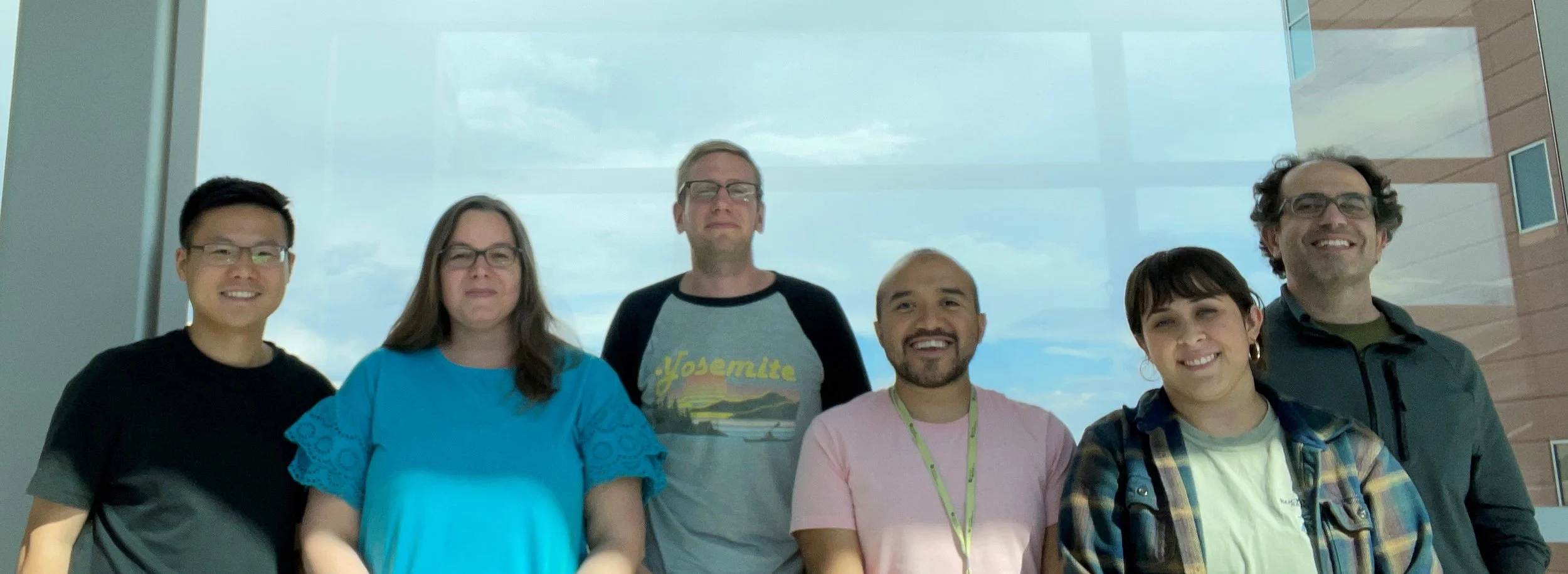
Lab philosophy
PI formal training in mentoring, well being and management
In terms of mentoring, Ceci has completed the Entering Mentoring Training; Culturally Aware Mentoring and Facilitating Entering Mentoring Curriculum from the Center for Improvement of Mentoring Experiences in Research (CIMER). Ceci also completed Facilitation Skills from the Office of Human Resources. In collaboration with other faculty form campus, Ceci has developed and implemented a Maximizing Mentoring workshop for mentors in the Anschutz graduate programs. Ceci participates as facilitator for the Maximizing Mentoring course once a year.
In terms of well being, Ceci attended the Supporting your trainees and the Mental Health and Well-Being in Biomedical Researchers workshop from the NIH Office of Intramural Training and Education. Ceci is the founding chair of the Wellness committee in the Pharmacology Department and a member of the Basic Sciences Wellness committee. Through this service, she has been involved in offering seminars, activities and workshops to promote work-life balance and prevent burnout.
In terms of equity and inclusion, Ceci has completed the Equity Certificate and Annual Bias training for Recruitment Committees from the Office of Diversity, Equity and Inclusion; and the Upstander/Ally training for faculty from the Office of Research Education. She attended an Interactive Workshop Series on Holistic Admissions for Graduate Programs from Educational Testing Service. Ceci is the chair of the Cancer Biology DEI committee and a member of the Graduate School DEI taskforce. Ceci serves as a liaison for the Molecular and Cellular Oncology (MCO) program at the University of Colorado Cancer Center. In this role, she interfaces with the office of Community Outreach and Engagement (COE) and the office of Cancer Research Training and Education Coordination (CRTEC).
In terms of managerial skills, Ceci completed Minimizing Conflict and Improving Effectiveness workshops from the CU Ombuds Office; Crucial Conversations, Crucial Accountability, Understanding Emotional Intelligence and Extended DISC communication styles training from the Office of Human Resources.
PI’s training philosophy
I believe training you is a privilege and that our mentor-mentee relationship should be framed to maximize both yours and my career growth while being sensitive to our cultural and personal identities. I want to foster your curiosity, independence and interpersonal skills so you achieve your career goals. I also want to embrace reverse learning, where I hope to become a better scientist, group leader and mentor thanks to my interactions with you.
What can you expect as a valued member of my lab? In addition to bench research, participating in weekly lab meetings, one-on-one meetings and department seminars, I will encourage you to attend national and international meetings and workshops, write papers and fellowships, participate in meetings with collaborators, train more junior students, lead journal clubs or lectures, and complete formal managerial training via the Human Resources manager program. We will also include additional research, professional and career development opportunities to match your own career goals and interests.
What do I expect from you as a valued member of my lab? I expect you take ownership of your project and your career and you become the main driver of your project. I hope you become a positive, enthusiastic and active contributor to our research and the lab culture, striving to be respectful and inclusive*. Having an honest relationship where both of us can be transparent, compassionate and direct, and show up as our authentic selves is paramount to navigate the challenges and opportunities we will experience while you are in my lab. I hope your time in the lab is used wisely to build skills and long lasting relationships, and that you have fun becoming a scientist in your own unique way!
—-
*The Caino lab is dedicated to providing a safe space for everyone, regardless of nationality, gender, age, sexual orientation, race, disability, appearance/weight, religion or native language spoken. We are committed to create an environment where everyone can thrive and feel welcome. We won’t accept biased/hateful speech or discriminatory or racist behaviors.
Note that graduate students will need to gain acceptance into one of the programs at the University of Colorado Anschutz Medical Campus: PhD programs (https://medschool.cuanschutz.edu/ore#ft-programs-1); Master Programs (https://graduateschool.cuanschutz.edu/programs-of-study/graduate-and-certificate-programs#ft-masters-programs-2). Limited opportunities for undergraduates are available for those who are admitted to the CREU or ACS-DICR summer programs (https://medschool.cuanschutz.edu/colorado-cancer-center/education/undergraduate-education-opportunities/creu-program-resources).